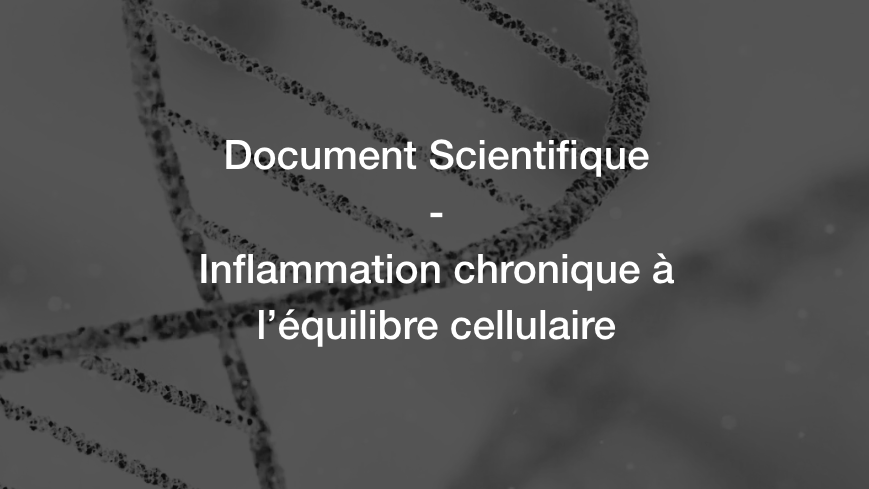While wrinkles and loss of skin moisture are seen as the most obvious signs of aging, they are only the tip of the aging iceberg.
Consequences of transformations occurring at the molecular level, the loss of flexibility and firmness of the skin vary from one individual to another.
Among the elements explaining this inequality, epigenetics tops the list.
A complex approach based on numerous factors, epigenetics could also be regulated through various mechanisms, notably nutrition.
What links between nutrition and epigenetics? What does this have to do with age? Would this approach make it possible to “age better”?
 Epigenetics and aging
Epigenetics and aging
epigenetic age and chronological age
If we all consider our age in terms of the number of years since our birth, it is clear that we do not age at the same speed.
To account for this phenomenon, a genetic marker is now used by the scientific community: the number of methylation sites in our genome.
It would seem in fact that it is by “methylating” certain segments of our genetic code (that is to say by modifying them with a methyl group: 1 carbon atom for 3 hydrogen atoms) that the expression of genes found there may vary.
In other words, it is possible to “turn on” and “turn off”, as it were, certain genes.
This also means that the symptoms of chronic diseases whose genes are present in our genetic heritage could be avoided if we were able to regulate this methylation, that is to say this activation.
Activate gene expression: why and how?
Indeed, to predict or even prevent the onset of diseases such as Parkinson's, Alzheimer's and many others, epigenetics would prove extremely useful.
If we defined “aging better” as the “ability to age without serious chronic illness significantly impairing vitality and mobility”, then epigenetics would prove to be a powerful tool.
So what would “aging better” mean?
However, can we not consider a more proactive approach to “aging better”? Beyond the prediction and prevention of serious chronic diseases, would it not be possible to improve the quality of life already acquired during the aging process and to perpetuate it to a certain extent?
This is the question answered by the recent study ¹ published in 2021 by Kara N. Fitzgerald's research team.
The positive epigenetic consequences of a well-thought-out health routine
Following on from the research of Steve Horvath ² , paving the way for the concept of “epigenetic clock”, Fitzgerald's discoveries improve the understanding of the epigenetics of age.
His 2021 research suggests that the aging process could be slowed as early as 8 weeks by controlling:
The living environment seems to have a direct effect on the way DNA expression changes with age, which could regulate the way we age.
As Fitzgerald points out in his publication, it is necessary to conduct more in-depth studies in order to assess to what extent the factors of a good quality of life make it possible to slow down aging and improve its conditions.
In other words, it remains necessary to determine the respective weight of sleep, physical exercise, relaxation and nutrition in the effectiveness of a health routine allowing better aging.
Nutrigenomics: when nutrition has a say in your aging
To determine this, the international scientific community has developed a specific research sector: nutrigenomics.
A branch of nutritional genomics (a discipline studying the links between genome, nutrition and health), this discipline seeks to understand at the molecular level the effects of the nutrients we consume on the expression of our genes.
This approach therefore offers a new way of optimizing diet, allowing us to envisage in the long term a detailed understanding of the impact of what we eat and the possibility of creating tailor-made diets in order to prevent appearance of certain diseases in each individual.
Limits of current medicine and potential of nutrigenomics in the face of aging-related diseases
As Gabriela Riscuta concludes in the publication of her research ³ in October 2016, promising avenues in this area remain unexplored and require more research in order to assess to what extent nutritional control can improve life expectancy. life, limit the appearance of cancers and slow down the aging process.
Nutricosmetics: a very real and proven approach to support aging
While waiting for the next scientific breakthrough in this field, nutricosmetics offers solutions offering to support the body towards a certain “better aging” as we could envisage it in the context of nutrigenomics, in other words: aging normally in preventing the onset of chronic diseases.
Using active ingredients such as hyaluronic acid, collagen or even ceramides, food supplements offer variable results depending on the brand, which therefore requires a certain amount of attention when choosing your nutrition cocktail.
MyCollagenLift: when nutricosmetics helps you support your aging
This is particularly what explains why the cocktail imagined by MyPUREskin only contains ingredients of 100% natural origin. Additionally selected to work in synergy, the principles of MyCollagenLift support you in the aging process through a triple action aimed at:
The nutrition and stimulation of your skin is ensured by:
At the same time, the contribution to the natural defense mechanisms of your epidermis and dermis against oxidative stress is found in:
If epigenetics does not yet make it possible to predict and control the senescence process, it is still possible to help your body protect itself against the factors of premature aging by starting a course of MyCollagenLift over 3 months. Contributing to the normal functioning of healthy skin, this food supplement will offer you progressive results from 4 weeks of use.
- Study by Kara N. Fitzgerald on the possible reversal of epigenetic age by a change in nutrition and living environment: https://www.ncbi.nlm.nih.gov/pmc/articles/PMC8064200/
- Research by Steve Horvath introducing the concept of the “epigenetic clock”: https://pubmed.ncbi.nlm.nih.gov/24138928/
- Study by Gabriela Riscuta on the potential of nutrigenomics in supporting the aging process, improving life expectancy and preventing cancer: https://www.ncbi.nlm.nih.gov/pmc/ articles/PMC5037878/





Share:
Staphylococcus white: an old bacterial enemy that has become your skin ally?
3 preconceived ideas about nutricosmetics: make no mistake!